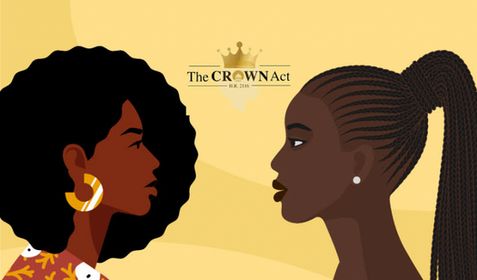
For centuries, natural hair has been a symbol of identity and pride for people of color. However, despite the growing acceptance of diverse cultural expressions, discrimination against natural hair remains a persistent problem in many parts of the world. From schools and workplaces to public spaces and social media, people with natural hair continue to face systemic biases and stereotypes that undermine their dignity and well-being. In this article, we will investigate the origins and impacts of natural hair discrimination, as well as the legal and social efforts to combat it.
Historical Roots of Natural Hair Discrimination
The roots of natural hair discrimination can be traced back to the legacy of colonialism and slavery, which sought to erase the cultural and physical diversity of African and indigenous peoples. Through forced assimilation and racial hierarchies, European colonizers and slave masters enforced Eurocentric beauty standards that included straight hair and light skin, while demonizing natural hair as "uncivilized" or "unkempt." This pattern continued in the post-colonial era, as Western media and popular culture reinforced these biases through the portrayal of Black people as exotic, primitive, or comical. As a result, many Black people internalized shame and self-hatred towards their natural hair, leading to a widespread practice of straightening, relaxing, or covering it up.
Contemporary Forms of Natural Hair Discrimination
Despite the cultural revival of natural hair in recent years, discrimination against it persists in various domains of life. In schools, for example, many students with natural hair are punished or excluded from activities for violating dress codes that prohibit "distracting" hairstyles such as Afros, dreadlocks, or braids. These codes often target Black students and implicitly promote a Eurocentric standard of professionalism and respectability. Similarly, in the workplace, Black employees with natural hair are often subjected to harassment, ridicule, or even job loss for not conforming to mainstream grooming standards that prioritize Eurocentric hair textures and styles. This can have a detrimental effect on their mental health, job satisfaction, and career advancement. Moreover, in public spaces, Black people with natural hair are often subjected to invasive and discriminatory searches or screenings by law enforcement or security personnel, who view their hair as a potential threat or concealment of contraband.
Legal and Social Responses to Natural Hair Discrimination
In response to these injustices, there have been growing legal and social efforts to challenge and eradicate natural hair discrimination. For instance, in 2019, the state of California became the first to pass a law (the CROWN Act) that bans race-based hair discrimination in workplaces and schools. Since then, several other states and cities have followed suit, as well as some corporations and organizations. In addition, grassroots movements such as the Natural Hair Movement and the #SupportThePuff campaign have raised awareness and advocacy for natural hair acceptance and celebration. Social media has also played a role in empowering individuals to share their stories, express their creativity, and challenge harmful stereotypes about natural hair.
In conclusion, natural hair discrimination is a complex and pervasive form of systemic bias that has deep historical roots and harmful contemporary effects. By recognizing the cultural significance and diversity of natural hair, and by supporting legal and social efforts to challenge discriminatory practices, we can work towards a more inclusive and equitable society that values and respects all forms of identity expression.






Leave Comment Below
0 Comment(s)